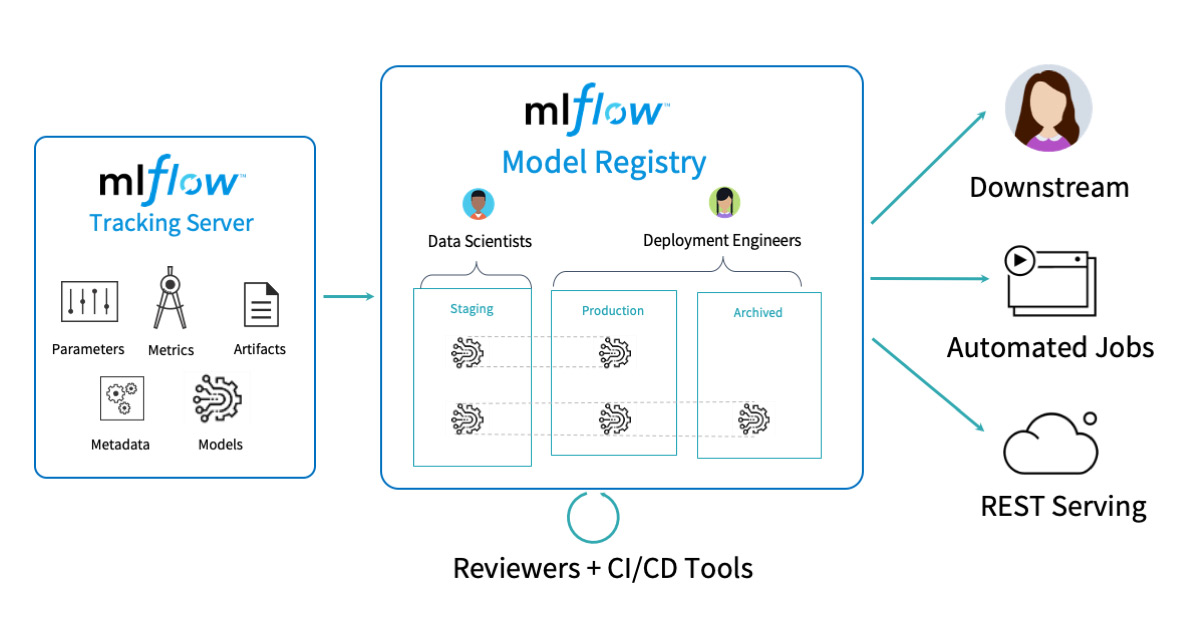Introduction MLOps with mlflow
MLflow is an open-source platform for managing the end-to-end machine learning lifecycle. It provides tools for tracking experiments, packaging and sharing code, and deploying models.
MLflow provides a unified platform for managing the entire machine learning lifecycle, from experimentation to deployment. It helps to increase productivity, collaboration, and reproducibility in data science projects.
Here are the main components of MLflow:
Experiment Tracking: This component helps you to track your machine learning experiments by recording and visualizing metrics, parameters, and artifacts. It allows you to easily compare different runs and reproduce results.
Model Packaging: This component provides a simple format for packaging data science code in a reusable and reproducible way. It also allows you to specify dependencies, such as libraries and data files, and to run code in different environments. This component provides a standardized way to package and deploy machine learning models. It supports a variety of popular frameworks, such as TensorFlow, PyTorch, and Scikit-learn, and provides tools for deploying models to a variety of platforms, such as Docker containers and cloud services.
Model Registry: This component provides a centralized repository for managing and sharing machine learning models. It allows you to track model versions, assign permissions, and share models with other users.

Notebooks
MLflow
- Basic MLOps workflow using MLflow - Into
- Basic MLOps workflow using MLflow - Functions
- Basic MLOps workflow using MLflow - Google Drive and Ngrok
- Basic MLOps workflow using MLflow - SQLite and Ngrok